
Can Pine Needle Tea Cure COVID-19? We've had several customers asking us about Pine Needle Tea. Why is it so popular, and does it help with COVID-19 recovery? We've explored this phenomenon and want to share what we've found.
Tea companies have had an explosion of interest and sales of Pine Needle Tea across the globe; ever since people claimed that Dr Judy Mikovits said it beats coronavirus transmission, and celebrities have advocated for the beverage's health benefits.
Some of our overseas tea colleagues and friends have reported unprecedented demand for pine needle tea!
There have been bold statements that it helps with COVID-19 infections and that the suramin and shikimic acid in white pine needles prevents the shedding of the spike protein in people vaccinated for COVID-19. Dr Mikovits said she didn't mention the tea, only suramin; however, and even more bizarrely, white pine needles don't even have suramin in them. No evidence has shown vaccinated people shed either. Finally, we haven't found any studies to show shikimic acid on its own does anything beneficial (though it is a component of the influenza drug Tamiflu).
While it's not looking to be the "one solution", there is good stuff in pine needle tea; it has been used medicinally for centuries, and there is even some research behind its benefits.
Who drank pine needle tea?
Many have enjoyed this aromatic brew for hundreds of years worldwide, and several written records are from the 1500s. With a history of the beverage's use as a medicine/nutrient source by many, including Native Americans, Chinese, Koreans, and sailors, we don't want to disregard the drink's potential - even if it isn't a magic cure.
Taoist priests believed drinking pine needle tea made them live longer. Koreans have two types of pine needle tea: red pine called solip-cha and Korean pine called jannip-cha or baek yeop-cha. Native Americans took pine needle tea to prevent sickness and treat coughs and colds. Sailors drank the beverage to keep scurvy at bay, thanks to the brew's vitamin C content after the Native Americans introduced it to the seafarers.
Pine Needle Tea in modern times is referred to as Christmas Tree Tea or Holiday Tea and is sold around the globe.

The Benefits of Pine Needle Tea:
- Vitamin C, the leaves have up to four times more than oranges. Take care not to boil your tea, though, or you will break down the vitamins.
- Vitamin A; good for vision, hair, skin and making blood cells.
- Anti Cancer properties; A 2006 study on mice given pine needle extract found the needles to have cancer and tumour prevention potential.
- Great for colds and flu because it helps decongest and soothe sore throats.
- Helpful for allergies - much like drinking Chamomile tea, ingesting pollen helps your body learn not to treat pollens as a foreign invader, reducing your hayfever response.
- May reduce blood pressure.
- Slows oxidative stress, which is great for post-workout and might slow aging.
- There might be antidepressant qualities to the tea (but it's only been studied on rats)
Negative effects of Pine Needle Tea:
- Not recommended while pregnant. It could put the little one at risk, so we recommend holding off if you're brewing a future tea lover.
- Is a mild diuretic, so keep up the water too.
- Many nutrients are lost if the tea is stored; it's better picked fresh.
Some types of pine aren't safe to drink:
- Ponderosa pine (AKA blackjack/western yellow/yellow/bull pine)
- Lodgepole pine (AKA shore pine)
- Common juniper
- Monterey cypress (AKA macrocarpa)
- Common yew
- Norfolk pine (AKA Australian pine)
How to brew Pine Needle tea:
- Pick fresh leaves from your tree of choice, taking care to avoid the unsafe varieties previously listed. Mature needles will be bitter but yield more nutrients; young needle tips will be a more pleasant drink.
- To reduce the loss of nutrients, we recommend letting boiled water cool off slightly before pouring on the needles.
- Steep your tea for 10-20 minutes
- Enjoy a healthy fat snack along your brew to help absorb the vitamin A, such as avocado or olive oil.
Our take from this:
There's enough evidence that drinking Pine Needle Tea has some benefits, mainly around the vitamins and antioxidants. The downside is that you'd likely need a highly processed extract to get these sought after medical results. For drinking, it needs to be fresh to get total nutrient value.
We have found that harvesting, drying and storing reduces some of the vitamin and oil-based benefits of the tea. If you want pine needle tea, we recommend hunting down a tree and harvesting your own. It could be great for your next cold or flu, but please avoid the pines that aren't safe to use.
We won't be selling Pine Needle Tea here until we can ensure there's a dried version that retains as much of its benefits as possible.
If you find yourself with COVID-19 and have access to a tree, there's no harm in trying a fresh brew - it might help soothe your throat and clear your nose. While no miracle cure, it certainly has a place in your healthy living routine.
Our customers regularly ask us which teas in our range are beneficial for immunity. The tricky answer is, all of them! If you like the sound of pine needle tea and want something in your cupboard, try our rooibos range. Rooibos is mineral-rich, aromatic and caffeine-free, so it makes an excellent substitute for pine needle tea because you don't need to worry about the degradation of these minerals. It stores well and is safe for pregnancy too.
Check out our rooibos tea range:
No.880 Maple Walnut
No.850 Orange Sky
No.811 Cool Summer Spice
No.881 Vanilla Cacao

1 comment
professor Duc Viet Nguyen, Ph.D. on